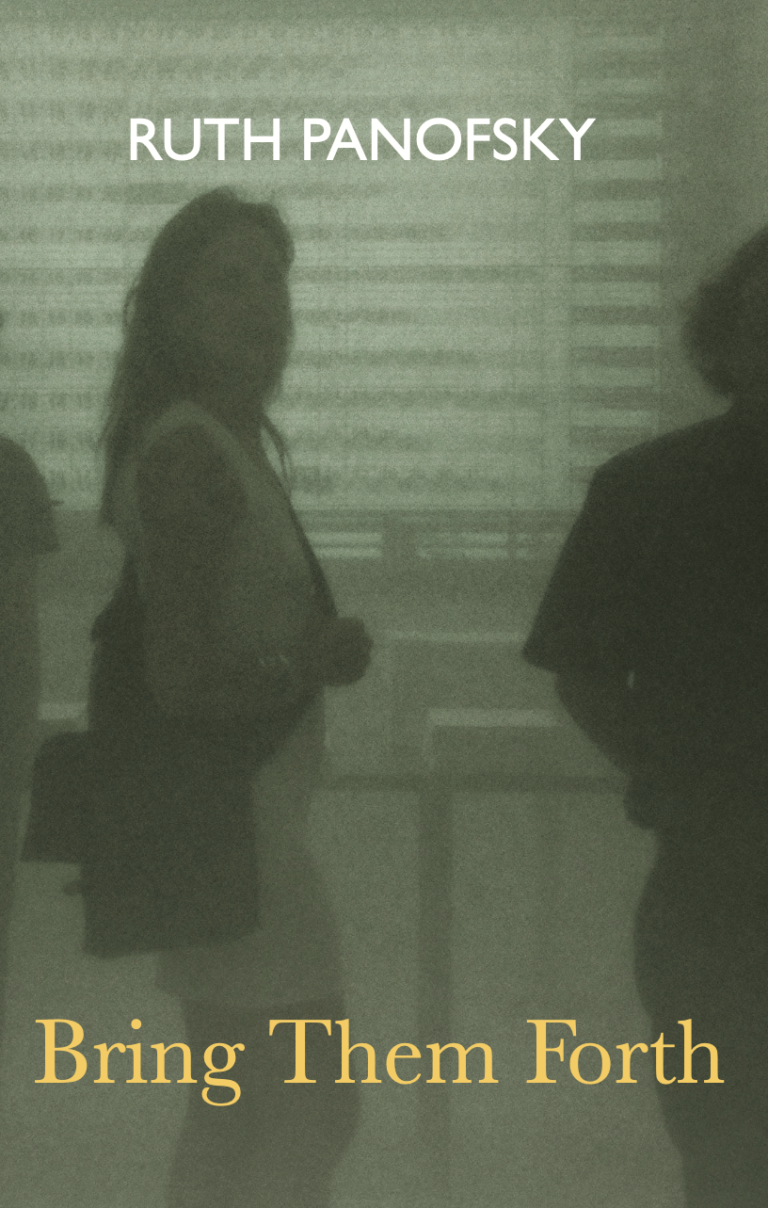Review of Bring Them Forth
Ekstasis Editions Canada. 2022. 114 pages.
After several years of Pilates classes, I find my legs, arms and back, bending and stretching without conscious thought, as if the exercises are a part of me. Body memory is at work in Bring Them Forth, the latest collection from Toronto-based poet and scholar Ruth Panofsky. Like deep exhalations of breath, these poems come from the body’s core, the words having lain dormant waiting for the opportunity to be transcribed to the page. The poems have a compelling physicality, with their short, unpunctuated lines strategically spaced on the page, each word carrying its weight.
First time, I read the book in one sitting, letting the intensity of the narrative lead the way. We meet the speaker as a child in the suburban family home in Chomedey, a working class suburb of Montreal. Prosperity is meant to flourish here but instead, the house pulses with a mother’s frustration and a father’s rage. The bodily expression of his anger explodes in three of the poems in “Rocket Man,” the second of six sections. Terse couplets, like jabs to the heart, bear witness to the father’s physical transformation and its effects on the family that loves him.
Twenty poems are devoted to this man. Secrets are revealed, and the speaker realizes how little she knows about her father. We learn of the shadow of history that haunts the family; of predecessors who fell prey to hatred and were buried in watery graves in the river Danube in Budapest.
The American poet Edward Hirsch, once wrote that, “each of us continues to carry on a one-sided lifelong conversation with our parents long after they have died…we are forever linked to them.” Panofsky’s poems exemplify this longing to understand our parents, to ask “why” they made the decisions they did hoping that this knowledge will not only ease our pain but help us move forward.
The mother is the focus of a series of poems in the third section, “Home Ground.” The tension sits tight like a tripwire beneath, “the disordered abundance,” dances on the “precision clothesline,” hung with “socks pinned together in perfect pairs,” lies down in deathly boredom each afternoon, blurts out in envy at a daughter’s girlish chatter.
In the poem, “Bully Stomp,” the wire snaps as the mother prepares for battle to protect her child from mocking comments made about her “round schoolgirl body.” We watch this body mature, witness the speaker’s growing awareness of the power of her body to entice attention. She has a shape and features passed down to her. Like most young women, she struggles with accepting these inherited gifts. In “Embodied,” the mirror reveals that she has her “grandmother’s weighty arms…broad hips thick thighs.”
“This long hair,” celebrates an easier to love feature, in ten playful tercets. Out in the world, she learns to balance desire with physical and emotional safety. And later, balance and acceptance are required as the relationship with her mother shifts after the death of her father. There is no erasing the past and some wounds cannot be healed. In “Disdain,” the speaker iterates what she can and cannot accept: “…but disdain and derision/these are wounds of the flesh.”
Panofsky chooses to soothe wounded flesh with the final poem in the collection. “The task of a hand” is a list poem that reaches back to the child alone, hiding from loud voices behind the closet door. It begins, “The task of a hand/is to hold a smaller hand…” This poem is brimming with hope. It is an instruction manual for instilling positive body memories.
Each time I sit with Bring Them Forth, I am reminded of the bravery required to expose our bruised and battered pasts. In Ruth Panofsky’s capable hands, courage combined with masterful poetics shapes memories into candid poems that speak truths that resonate.

